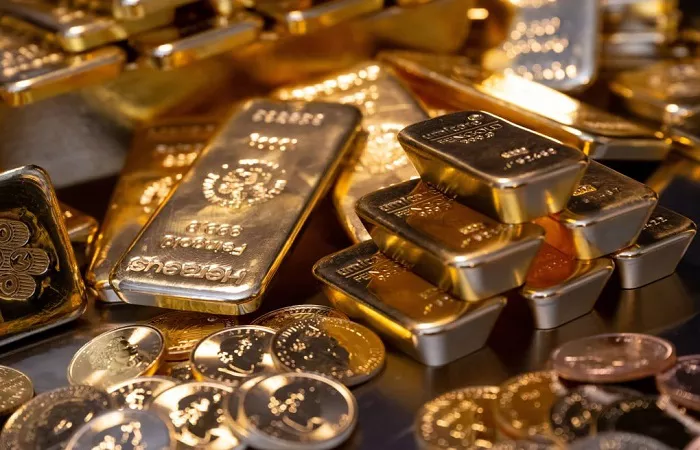Markets remained volatile Monday as escalating tensions between Israel and Iran continued to drive up oil and gold prices, amid growing concerns the conflict could drag on and reignite global inflation.
Oil extended its rally for a fourth straight day after Israel and Iran exchanged missile strikes, prompting fears of a broader regional conflict. Gold also climbed, nearing record highs as investors sought refuge in safe-haven assets.
While equity markets declined broadly across Asia, losses were somewhat tempered by hopes that the violence would not spread beyond the immediate conflict zone.
Adding to market uncertainty are several key events on the global economic calendar. Investors are closely watching this week’s policy meetings at the U.S. Federal Reserve and the Bank of Japan, as well as trade talks between Washington and global partners aimed at averting the imposition of sweeping tariffs proposed by former President Donald Trump.
Oil prices surged as much as 13% at one point following Israel’s surprise strike on Iranian military and nuclear facilities Friday, which reportedly killed senior Iranian commanders and scientists. The attack stoked fears of potential disruptions to energy supplies from the region.
Market analysts warned that elevated energy costs could once again push inflation higher globally, complicating central banks’ efforts to tame price growth and stabilize fragile economies.
“The knock-on impact of higher energy prices is that they will slow growth and cause headline inflation to rise,” said Tony Sycamore, market analyst at IG. “If elevated energy prices persist, they could feed into higher core inflation as businesses pass on higher transport and production costs.”
Sycamore added that such inflationary pressures could limit the ability of central banks to cut interest rates — a tool they might otherwise use to cushion economic headwinds, including those arising from renewed U.S. tariff threats.
Fed, BoJ Policy Decisions in Focus
Oil benchmarks were up more than 1% in early Asian trading. However, Morningstar’s Director of Equity Research Allen Good offered a more measured view.
“Oil markets remain amply supplied, with OPEC intent on increasing production and demand still soft,” said Good. “While U.S. production growth has slowed, it could rebound if higher prices persist. A larger war seems unlikely, especially given that the Trump administration has reiterated its commitment to diplomatic engagement with Iran.”
He noted that while geopolitical risk premiums could keep prices moderately elevated, underlying fundamentals do not currently justify a dramatic price increase.
In equities, Hong Kong, Sydney, Singapore, Wellington, Taipei, Bangkok, and Jakarta all posted losses. Tokyo, however, saw gains thanks to a weaker yen, while Shanghai, Seoul, and Manila also edged higher.
Gold rose to around $3,450 an ounce, nearing its all-time high of $3,500, as geopolitical uncertainty pushed investors toward traditionally stable assets.
Meanwhile, the Group of Seven (G7) summit opened Sunday in the Canadian Rockies. World leaders are expected to discuss the Middle East crisis and global trade, particularly in light of Trump’s aggressive tariff policies.
Market participants are also awaiting policy statements from the Federal Reserve and Bank of Japan. While both are expected To keep interest rates unchanged, traders will be scrutinizing forward guidance for clues about the trajectory of monetary policy.
“The Fed meeting will naturally get the greatest degree of market focus,” said Chris Weston, head of research at Pepperstone. “While a rate cut isn’t expected, we’ll get fresh economic projections and insight into policymakers’ thinking on future moves.”
Weston added that the Fed is likely to remain cautious given the number of global uncertainties, and he expects its statement to emphasize that current policy is well-positioned for now.
Corporate Spotlight: Nippon Steel Surges
In corporate developments, shares of Nippon Steel jumped more than 3% after the Biden administration approved its $14.9 billion acquisition of U.S. Steel. The executive order signed Friday brings a close to months of negotiations and regulatory scrutiny surrounding the high-profile merger.
Related topics:
- India Surpasses China in Gold Purchases, Buying 51% More in Three Months
- Qilu Bank Enhances Support for Small Businesses with Innovative Financial Tools
- Bitcoin Poised for a Surge Amid Gold’s Delivery Delays, Expert Claims


